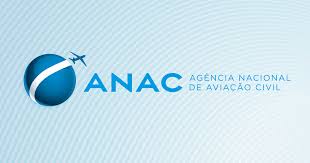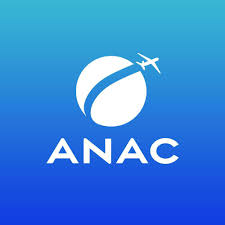
The National Agency for Civil Aviation (ANAC) in Mali has emerged as a pivotal yet under-scrutinized player in the contentious Securiport contract, a multi-million-dollar aviation security agreement currently entangled in a legal investigation over allegations of corruption, embezzlement, and financial misconduct. While high-profile figures such as Major General Salif Traoré, the former Minister of Security and Civil Protection, Traoré Seynabou Diop, the former Minister of Equipment, Transport, and Disenclavement, and Dr. Boubou Cissé, the former Minister of Economy and Finance, have faced questioning in connection to the deal, the full extent of their involvement remains murky. However, a closer examination of the contract’s operational framework reveals that ANAC’s role in managing its financial aspects has been largely overlooked, raising critical questions about the agency’s accountability and potential culpability in the unfolding scandal.
This case, centered at Bamako-Sénou International Airport, Mali’s primary aviation hub, involves Securiport LLC, a prominent American firm specializing in aviation security systems. The contract, intended to enhance airport security and streamline passenger processing, has instead become a lightning rod for controversy due to irregularities in its financial execution. At the heart of the matter lies ANAC’s responsibility for collecting and distributing passenger fees—a role that positions the agency as a linchpin in the contract’s financial operations. Yet, despite mounting evidence of discrepancies, including missing contract pages that obscure profit-sharing details, ANAC has remained on the periphery of the investigation. This omission has fueled speculation about whether the agency’s actions—or inactions—may have enabled the alleged misconduct, intentionally or otherwise.
As the legal probe deepens, the Securiport contract saga offers a stark illustration of the challenges facing Mali’s governance structures, where opaque financial dealings and institutional oversight gaps threaten public trust. This expanded analysis delves into the intricacies of the contract, ANAC’s central yet underexamined role, the implications of missing documentation, and the broader legal and societal ramifications of the case.
The Securiport Contract and ANAC’s Financial Mandate

Securiport LLC, headquartered in Washington, D.C., is a globally recognized leader in aviation security solutions, known for deploying advanced technologies to enhance border control and passenger screening at airports worldwide. In Mali, the company secured a contract to operate at Bamako-Sénou Airport, a critical gateway for international travel and trade in West Africa. Under the terms of the agreement, Securiport is tasked with collecting access fees from passengers, which are seamlessly integrated into the cost of airline tickets. These fees, intended to fund security operations and generate revenue for the state, are not retained by Securiport directly. Instead, they are funneled through ANAC, Mali’s civil aviation authority, which assumes the responsibility of disbursing the funds according to a prearranged formula: Securiport receives 75% of the proceeds, while the Malian state is entitled to the remaining 25%.
On paper, this arrangement appears straightforward—a public-private partnership designed to bolster airport security while providing a steady revenue stream for both the contractor and the government. In practice, however, the execution of this financial model has proven far more complex and contentious. ANAC, as the intermediary between Securiport and the state, occupies a position of significant influence, tasked with ensuring that the collected fees are accurately accounted for and distributed in accordance with the contract. This role requires meticulous record-keeping, transparent reporting, and strict adherence to the agreed-upon terms—standards that, evidence suggests, may not have been consistently met.
The question that looms large is why ANAC’s handling of these funds has not been subjected to greater scrutiny. Given its central role in the contract’s financial architecture, the agency’s operations should logically be a focal point of the investigation. Yet, thus far, the spotlight has remained trained on the former ministers who co-signed the decree authorizing the deal, leaving ANAC’s actions—or potential oversights—largely unexamined. This gap in the inquiry has sparked concerns among observers that the investigation may be missing a critical piece of the puzzle, one that could unlock a fuller understanding of how the alleged misconduct occurred and who bears ultimate responsibility.
Missing Pages and the specter of Corruption

The Securiport contract controversy took a dramatic turn when a lawyer involved in the case disclosed a startling revelation: a key page detailing the state’s share of the profits had vanished from the contract documentation presented during the investigation. This missing page, which reportedly outlined the 25% allocation due to the Malian government, has raised alarm bells about possible deliberate concealment. The implication is chilling—if critical financial details were intentionally obscured, it suggests a coordinated effort to mislead auditors, investigators, or the public about the true nature of the revenue-sharing arrangement.
While the original contract reportedly remains intact, the absence of this page in subsequent copies points to a potential cover-up by those tasked with executing or overseeing the agreement. The former ministers—Salif Traoré, Traoré Seynabou Diop, and Boubou Cissé—have been implicated as co-signatories of the decree that formalized the deal, making them prime targets of the investigation. Their involvement, while significant, pertains primarily to the contract’s authorization rather than its day-to-day administration. By contrast, ANAC’s role in managing the funds places it at the operational heart of the controversy, yet the agency has not faced comparable scrutiny over the missing documentation.
The disappearance of this page is not merely a clerical error; it carries profound implications for the integrity of the contract and the trustworthiness of the institutions involved. Without a complete record of the profit-sharing terms, it becomes nearly impossible to verify whether the state received its full entitlement or whether funds were siphoned off through mismanagement or malfeasance. ANAC, as the entity responsible for collecting and disbursing the fees, would have been in a position to detect—or perpetrate—such irregularities. The fact that the agency has not been pressed to explain its role in this anomaly raises troubling questions about the scope and direction of the investigation.
Moreover, the missing page underscores a broader pattern of opacity that has plagued the Securiport contract from its inception. Public-private partnerships of this nature, particularly in resource-constrained nations like Mali, often operate under intense scrutiny due to their susceptibility to corruption. The aviation sector, with its high financial stakes and complex regulatory frameworks, is especially vulnerable to exploitation. In this context, ANAC’s apparent exemption from rigorous examination seems increasingly indefensible, prompting calls for a more comprehensive probe that encompasses all parties involved in the contract’s execution—not just its authorization.
Legal Implications and the Attorney General’s Role
The Securiport case has thrust Mali’s legal system into the spotlight, with the Attorney General of the Supreme Court tasked with navigating a labyrinth of allegations ranging from corruption to embezzlement. The investigation, while ongoing, has yet to produce definitive conclusions, leaving the public and legal observers in a state of uncertainty. Previous rulings by the Attorney General on similar cases of financial misconduct have set a precedent for holding public officials accountable, but the Securiport probe remains shrouded in ambiguity, with critical questions unanswered.
At the core of the legal inquiry is the issue of transparency—or the lack thereof—in the contract’s financial management. ANAC’s role as the custodian of the passenger fees places it under a legal and ethical obligation to maintain accurate records and ensure that disbursements align with the contract’s terms. Any deviation from these responsibilities, whether through negligence or deliberate action, could constitute a breach of fiduciary duty, potentially exposing the agency and its leadership to liability. Yet, the investigation has thus far focused primarily on the former ministers, whose involvement appears more symbolic than operational.
The Attorney General faces a formidable challenge in untangling this web of accountability. The missing contract page complicates efforts to establish a clear chain of responsibility, while ANAC’s muted presence in the probe raises doubts about whether the investigation is cast widely enough to capture the full scope of the alleged misconduct. Legal experts argue that a thorough examination of ANAC’s financial practices—complete with audits of its records and interviews with its personnel—could shed light on whether the agency fulfilled its obligations or inadvertently facilitated the irregularities under scrutiny.
Beyond the immediate legal ramifications, the case carries significant implications for Mali’s judicial credibility. Corruption scandals involving public funds erode public confidence in governance institutions, particularly in a country already grappling with political instability and economic challenges. The Attorney General’s handling of the Securiport investigation will serve as a litmus test for the judiciary’s ability to deliver justice impartially and comprehensively, ensuring that no entity—whether a high-ranking official or a state agency—escapes accountability.
Securiport’s Role and the Revenue Model Under Scrutiny
Securiport LLC’s involvement in the Bamako-Sénou Airport contract reflects a broader trend of outsourcing critical security functions to private firms, a practice that has gained traction globally as governments seek to leverage private-sector expertise. Founded in Washington, D.C., Securiport has built a reputation as a trusted provider of aviation security systems, with operations spanning multiple continents. In Mali, its mandate includes implementing passenger screening technologies and collecting associated fees—a model that, in theory, aligns the company’s financial incentives with the state’s security priorities.
The revenue model underpinning the contract is relatively simple: passengers pay an access fee embedded in their airline tickets, which Securiport collects and transfers to ANAC for distribution. Securiport retains 75% of these funds to cover its operational costs and profit margin, while the remaining 25% is allocated to the Malian government. This arrangement, while lucrative for Securiport, hinges on ANAC’s ability to accurately track and allocate the funds—a task that appears to have faltered amid the current controversy.
The scale of the revenue involved is substantial, given Bamako-Sénou’s status as a regional aviation hub. Even modest discrepancies in the accounting or distribution of these fees could translate into significant losses for the state—or illicit gains for those exploiting the system. The investigation’s focus on the missing contract page suggests that the profit-sharing breakdown may have been manipulated, either to underreport the state’s share or to divert funds elsewhere. ANAC, as the intermediary, would have been uniquely positioned to detect such discrepancies, making its silence—or potential complicity—a critical issue for investigators to address.
Securiport, for its part, has not been publicly accused of direct wrongdoing in the scandal. As a private contractor, its obligations are defined by the terms of the agreement, and its financial entitlement—75% of the fees—is not in dispute. However, the company’s reliance on ANAC to manage the funds introduces a layer of risk, as any irregularities on the agency’s part could implicate Securiport indirectly. The firm’s reputation as a global leader in aviation security adds further stakes to the case, as a tarnished outcome in Mali could reverberate across its international operations.
The Investigation’s Trajectory and Broader Implications
As the investigation into the Securiport contract progresses, its scope appears poised to expand beyond the former ministers to encompass the broader ecosystem of actors involved in its execution. ANAC’s role, once a footnote in the narrative, is increasingly difficult to ignore, given its hands-on management of the funds and its proximity to the missing documentation. The agency’s operational practices—its accounting methods, internal controls, and oversight mechanisms—will likely come under closer scrutiny as investigators seek to trace the flow of money and pinpoint where the system broke down.
The case also highlights systemic vulnerabilities in Mali’s public administration, where weak institutional checks and balances create fertile ground for corruption. The Securiport contract, with its blend of public and private interests, exemplifies the challenges of ensuring accountability in such partnerships. The missing contract page, while a singular anomaly, symbolizes a deeper malaise—a willingness to obscure financial realities at the expense of public welfare.
For the Attorney General, the path forward requires a delicate balance: pursuing justice without succumbing to political pressures, and ensuring that the investigation’s findings are robust enough to withstand scrutiny. The outcome of the probe will reverberate beyond the courtroom, shaping perceptions of governance, foreign investment, and institutional integrity in Mali. If ANAC’s role is found to have been complicit or negligent, it could prompt a reckoning for the agency and a reevaluation of how similar contracts are managed in the future.
Ultimately, the Securiport controversy is more than a legal dispute—it is a window into the complexities of power, profit, and accountability in a nation striving to stabilize its institutions. As the investigation unfolds, the hope is that it will not only deliver justice but also catalyze reforms to prevent such scandals from recurring. For now, the responsibility rests with Mali’s legal authorities to illuminate the shadows cast by the missing pages and ensure that no one—not the ministers, not ANAC, and not Securiport—evades the consequences of their actions.







